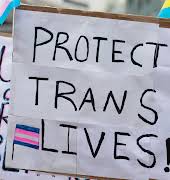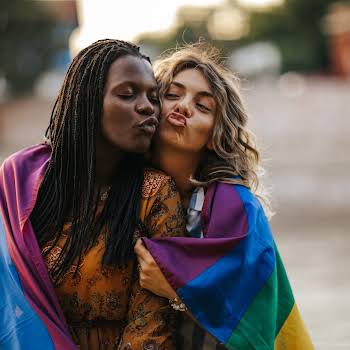
By Erin Lindsay
15th Jan 2020
15th Jan 2020
YouTuber and make-up artist NikkieTutorials revealed her identity as a trans woman in a video posted this week
Well-known YouTube star and make-up artist Nikkie De Jager hit the headlines this week — not for another A-list celebrity guest, or for a groundbreaking makeup look posted on her channel. This week, the topic was much more personal.
De Jager, who, at 25, has been uploading to YouTube for over ten years, posted a video on Monday entitled “I’m Coming Out”, where she revealed that she is a transgender woman. Nikkie explained that she underwent her transition in her late teens, and explained her reasoning behind revealing her gender identity now in 2019.
According to Nikkie, she had been threatened with being ‘outed’ as trans, and with blackmail to reveal her story. She said it was “vile”, “gross” and “frightening” that people were willing to disrespect her privacy by outing her identity before she was ready.
Thankfully, the reaction to De Jager’s revelation has been largely very positive, both from her friends in the industry and fans on social media. De Jager is one of the most popular YouTube make-up artists in the world, with over 12.9 million subscribers to her channel. Last year, it was announced that De Jager would serve as the Global Beauty Adviser for Marc Jacobs Beauty.
Damaging impact
‘Outing’ an LGBTI+ person’s identity (i.e revealing or threatening to reveal their sexual preference or gender identity against their wishes) can be extremely damaging to that person. And according to Moninne Griffith, Executive Director of BeLongTo, an LGBTI+ charity service for young people, it is something that their users worry about a lot.
“LGBT people, in general, are already at a much higher risk of mental health problems, such as depression and anxiety. A 2016 report by Trinity College found that LGBT people were twice as likely to self-harm, three times as likely to contemplate suicide, and four times as likely to experience severe or extremely severe depression or anxiety.
Both can be triggered by bullying by exclusion, and by the prejudice and stigma in society or in our communities. This act of ‘outing’ someone can a terrible impact on their self-esteem and mental health.”
“On my own terms”
In De Jager’s video, she expressed that had always wanted to tell her story on her own terms, and had had that opportunity taken away. According to Griffith, depending on the individual, the effects of outing can range from “a little annoying to extremely traumatic”.
“You never know somebody’s background — how supportive or unsupportive their family are, how their friends and community treat them, whether they are supported in school or their workplace. If you publicly reveal this part of their identity, it can have a terrible impact.”
Griffith went on to say: “Hopefully, we’ll get to a stage where ‘outing’ someone won’t mean anything because nobody will care. But unfortunately at the moment, there is still a lot of prejudice that can affect young people’s lives and worry them about the impact of coming out.
What can I do?
If you are an LGBTI+ person who has been threatened with being outed, there are steps you can take. Griffith recommends making contact with a support system, whether that be an LGBT youth group or a trusted friend or family member. You can also call a 24-hour support text line for LGBTI+ issues by texting LGBTI+ to 086 1800 280.
“The most important thing is to share that fear and anxiety with somebody else. By doing this, it will automatically decrease,” Griffith said. “You’re never alone. You’re never the first person but this happened to. So many other LGBT people have gone through this. You can get help from peers, from youth workers, from health lines and from text lines.
“This time might be really stressful for you right now, but you will get through it.”
Read more: Hanging a rainbow flag is not enough to support LGBTI+ employees
Read more: Miley Cyrus, her divorce and the kiss: how society is undermining a queer woman’s sexuality
Read more: Heartwarming video shows older LGBTQ+ people’s ‘Long Road To Pride’























